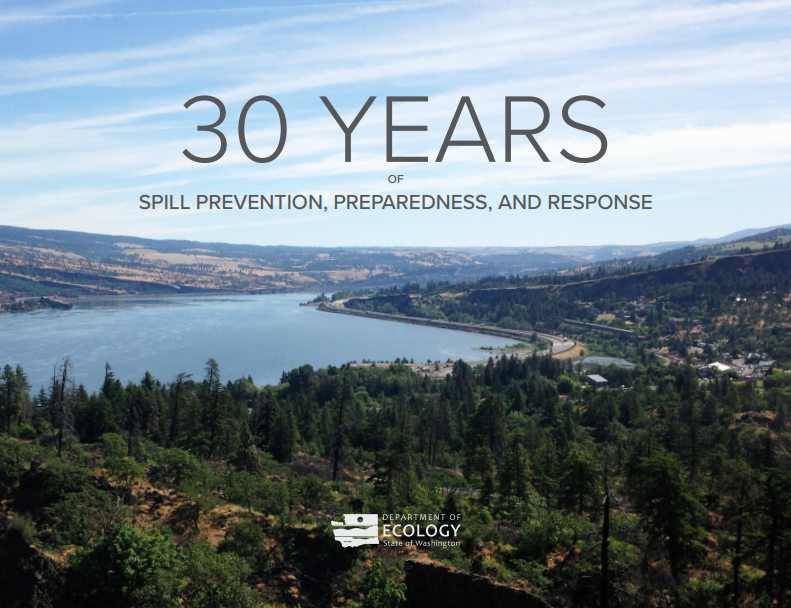Spill Prevention, Preparedness, and Response Program
We have a zero spills goal in Washington. We emphasize oil spill prevention because it’s cheaper than cleanup, and far better for the environment. When spills of oil or hazardous materials do happen, we’re prepared to mount a rapid, aggressive, and well-coordinated response to reduce harmful impacts.
Why does Washington need a Spills Program?
More than 20 billion gallons of oil is transported through Washington each year by vessel, pipeline, and rail. Washington is a primary West Coast port for international shipping trade and a major oil refining state. Based on 2006 numbers, a large spill could cost the state $10.8 billion and 165,000 jobs.
We're constantly adapting and improving our spill prevention and preparedness measures to protect the state's environment, economy, the health of communities, and the health of cultural and historical resources.
What does the Spills Program do?
Our "zero spills" strategy helps prevent oil and hazardous substances from entering state waters. Our spill prevention requirements apply to industries that handle or transport oil in Washington, such as large vessels, refineries, oil storage and marine fueling terminals, mobile oil suppliers, and certain marinas and boatyards. Our prevention work includes assessing the potential risks that oil transportation poses to people and the state's major waterways, Puget Sound, and the Columbia River.
Evaluations of spill prevention plans and operations manuals, oil-handler training and certifications, inspections, and technical assistance help industries meet our prevention requirements while protecting Washington's environment. We also conduct spill investigations to seek out causes of spills and provide recommendations for prevention of future incidents.
We know the sooner we effectively respond to an oil spill the better. By being prepared, spills are prevented from spreading and cleaned up more quickly, resulting in less environmental damage.
Preparing for spills includes activities such as:
- Developing and testing oil spill contingency plans.
- Capturing lessons learned from drills and spills.
- Updating plans to ensure they are more effective.
- Coordinating with other spill and emergency response interests.
We review and approve plans, provide technical assistance to industry and communities and test plans through oil spill drills.
Whether we are responding to chemical releases, motor vehicle accidents, grounded vessels, train derailments, or cleaning up drug labs, our top objectives are to ensure the health and safety of Washington's citizens, and to protect the environment and the economy. In Washington, we're designated to coordinate oil spills and hazardous materials response efforts by working with all state agencies and local emergency response personnel on incidents that threaten or impact state waters.
We have teams based in Bellingham, Bellevue, Olympia, Vancouver, Union Gap, and Spokane to provide year-round, statewide, 24-hour a day response services. We also oversee environmental restoration after a spill has occurred as part of our response work.
Anyone responsible for spilling oil into state waters is liable for damages resulting from injuries to natural, cultural and historic, and publicly owned resources. The Natural Resource Damage Assessment (NRDA) process determines damages in partnership with other federal, state and local agencies, and tribes. Damages collected from these assessments fund restoration projects around the state.
Related links
Contact information
Spills Program receptionist
360-407-7455
Media inquiries
Jasmin Adams
Spills Program Acting Communications Manager
jasmin.adams@ecy.wa.gov
360-464-0324


